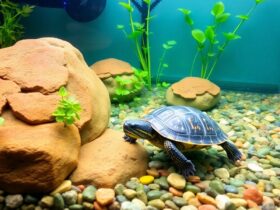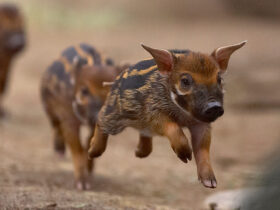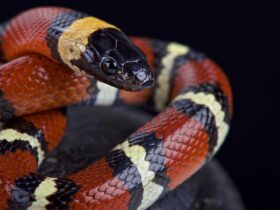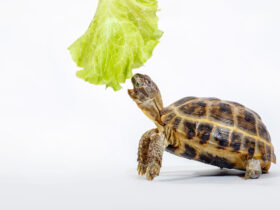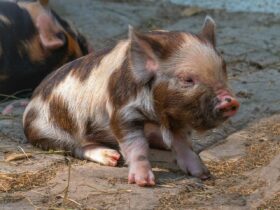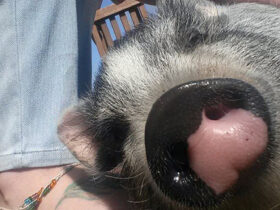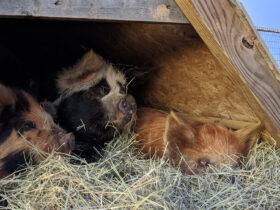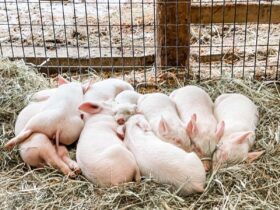So, you’re thinking about getting a mini pig, huh? These little guys are super cute and can be great pets, but there’s a lot to know about their temperament. Mini pigs are not just tiny versions of farm pigs; they have their own unique personalities and needs. Before you bring one home, it’s important to understand what you’re getting into. Let’s break down everything you need to know about mini pig temperament.
Understanding mini pig temperament
The nature of mini pigs
Mini pigs are fascinating creatures, often surprising people with their unique personalities. Unlike dogs, mini pigs don’t have an inherent desire to please their owners. Instead, they are more independent, often doing what they want. This independence is a hallmark of their nature. However, this doesn’t mean they aren’t affectionate or capable of forming strong bonds with their human companions. Mini pigs are also quite intelligent, which can make them both delightful and challenging pets.
Common personality traits
When it comes to personality, mini pigs are known for being stubborn. They have a mind of their own and aren’t easily swayed once they’ve decided on something. This stubbornness is paired with a high level of intelligence, making them quick learners when they choose to be. Mini pigs can also be quite affectionate, enjoying cuddles and companionship. However, they might not be as playful as other pets, preferring to explore or eat rather than play with toys.
Social behavior with humans
Mini pigs are social animals and thrive on interaction with their human families. They enjoy being part of the household activities and can become quite attached to their owners. It’s important to spend time with them daily to strengthen this bond. Pigs communicate through a variety of sounds, from grunts to squeals, which they use to express their needs and emotions. This communication is key to understanding their social behavior and ensuring they feel secure and loved in their environment.
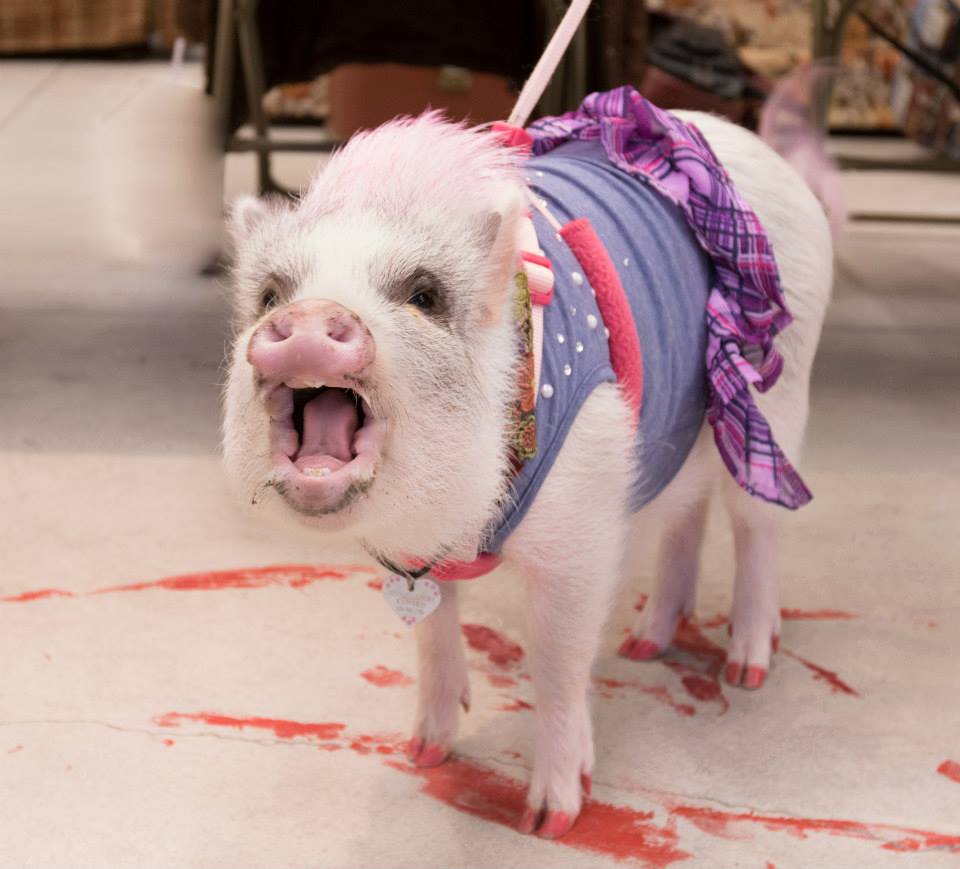
Training and behavior management
Effective Training Techniques
Training a mini pig is crucial for shaping their behavior and ensuring they fit well into your home. Start early with training to establish good habits from the get-go. Consistency is key, so keep a regular schedule and use positive reinforcement like treats and praise. Mini pigs are smart and can learn commands similar to dogs. Try simple commands like “sit” or “come.” Patience is important because pigs have their own pace, and rushing them can lead to setbacks.
Addressing Behavioral Issues
Mini pigs sometimes develop behaviors that need correcting, such as nipping or being stubborn. Address these issues by understanding the root cause. If your pig is acting out, it might be a sign of boredom or lack of stimulation. Providing toys or treat balls can help keep them occupied. If your pig has accidents indoors, consider whether their litter box is too close to their sleeping or eating area. Adjust as needed to avoid confusion.
Importance of Socialization
Socialization is vital for a mini pig’s well-being. Introduce your pig to different environments and people gradually. This helps them become comfortable and reduces anxiety. Spend time with your pig daily to build trust and a strong bond. If your pig seems fearful or aggressive toward certain people, work on slowly building their confidence around those individuals. Remember, pigs can be wary of strangers, so patience and gentle encouragement are essential.
Training a mini pig requires time and patience, but the payoff is a well-behaved companion who fits seamlessly into your family. By starting early and maintaining a consistent routine, you’ll foster a positive environment for both you and your pig.
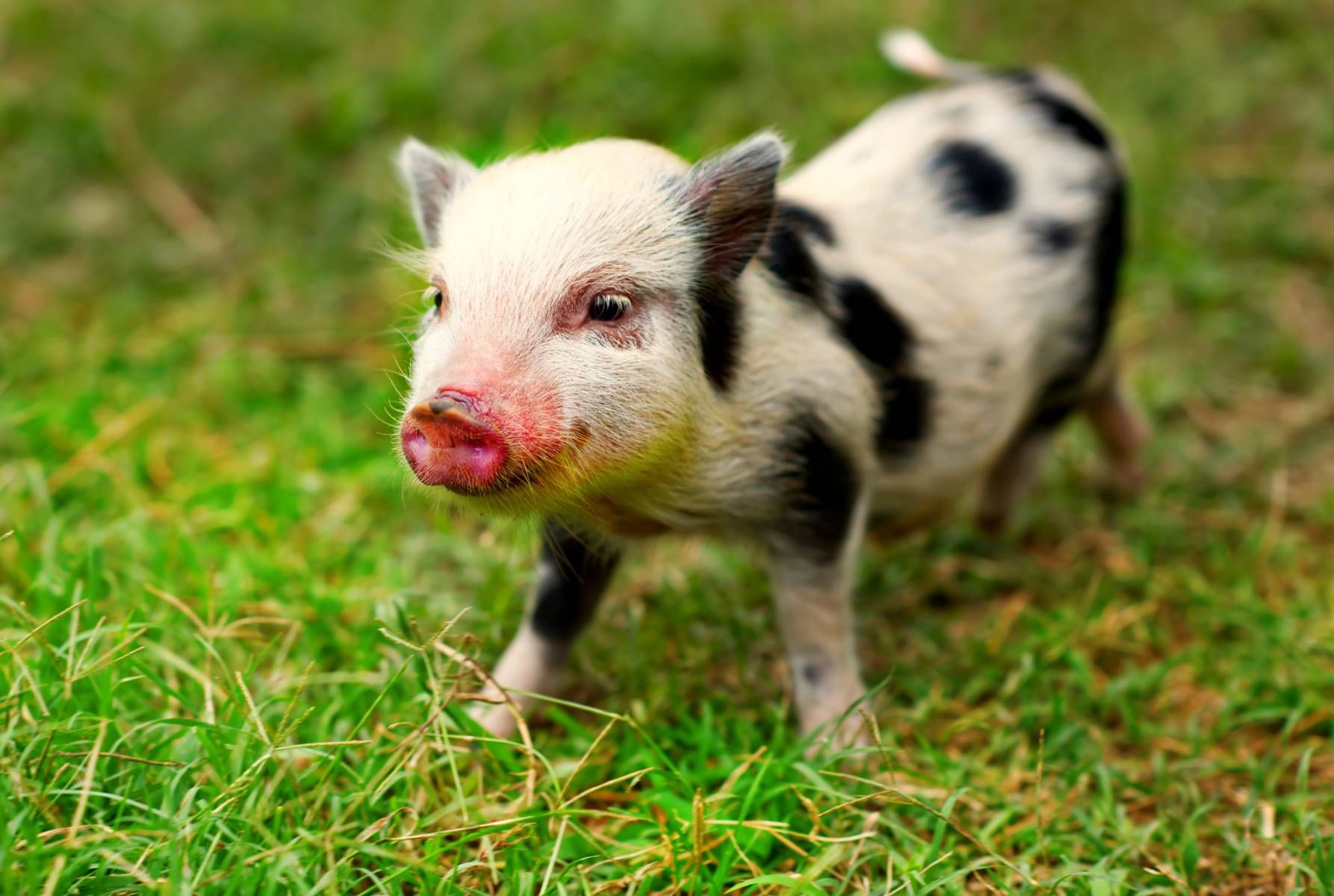
Living with a mini pig
Creating a suitable environment
Creating a home for a mini pig isn’t just about space; it’s about making sure they have the right kind of space. Mini pigs need room to roam and explore, both indoors and outdoors. If you’re thinking about keeping your pig inside, make sure your home is pig-proof. This means securing loose wires, removing small objects they might swallow, and ensuring they can’t access harmful substances. Outdoors, a fenced area is crucial to keep them safe while they satisfy their natural urge to root around. Remember, a mini pig can be quite the escape artist!
Noise levels and their impact
Mini pigs are not silent pets. They communicate through a variety of sounds, from grunts to squeals. These noises can be endearing, but they can also be quite loud and persistent. If you’re someone who values peace and quiet, or if you work from home and need a noise-free environment, this is something to consider. Pigs “talk” a lot, and their vocalizations can sometimes be disruptive.
“Living with a mini pig means embracing a symphony of oinks and grunts, a constant reminder of their lively presence.”
Interaction with other pets
Introducing a mini pig to other pets can be a mixed bag. Some dogs and cats accept pigs easily, while others may see them as intruders. It’s important to supervise initial interactions closely. Dogs, in particular, can pose a threat if they are not used to pigs. Always ensure that pets are never left unsupervised together until you are confident in their relationship. Pigs are social creatures and, with time and patience, can form bonds with other animals.
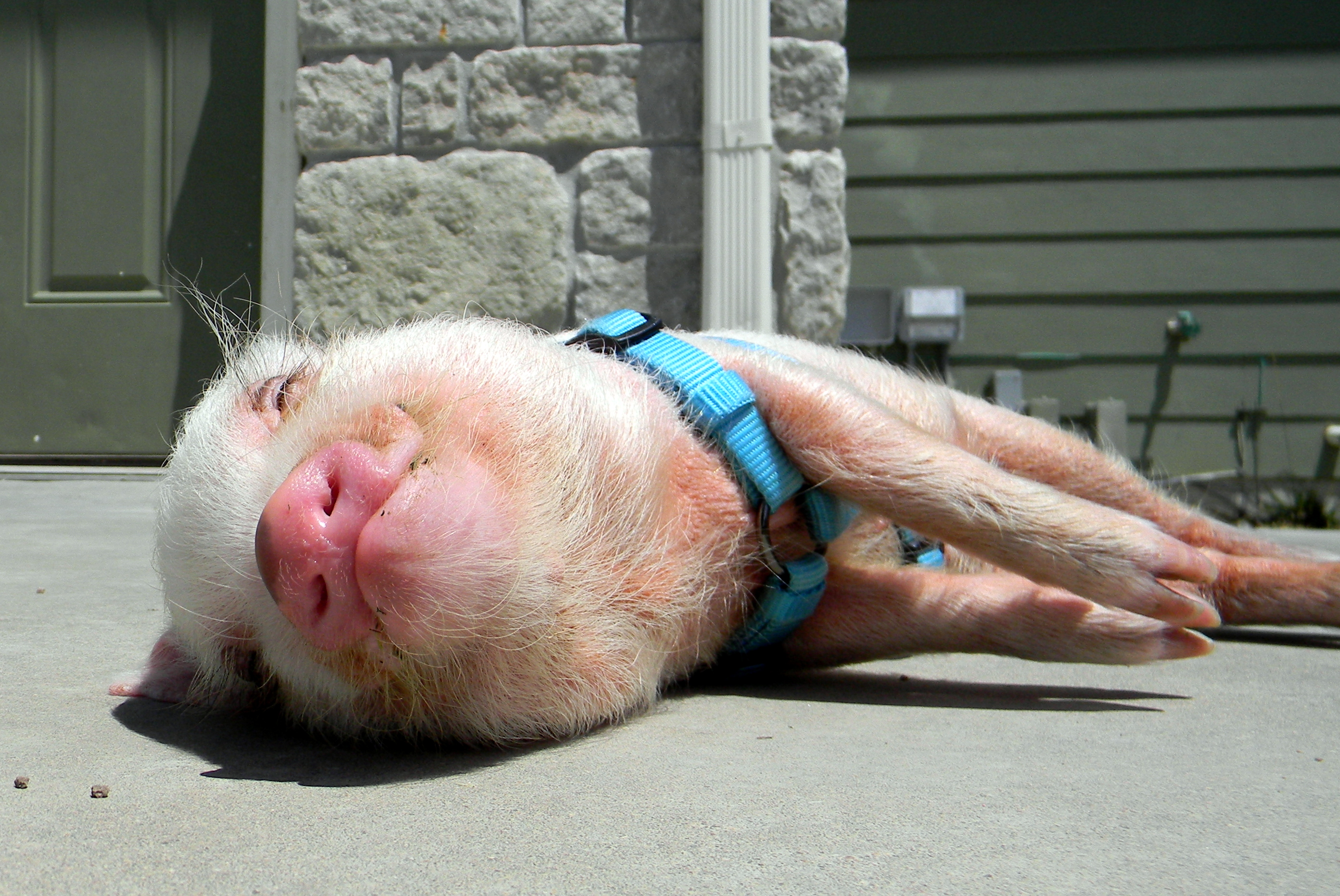
Health and wellness considerations
Dietary Needs and Habits
Feeding your mini pig the right diet is like finding the perfect balance. These little guys need a mix of specially formulated pig pellets, fresh water, and a limited amount of fruits and veggies. It’s crucial to avoid toxic foods such as alcohol, avocado, and caffeinated items. Keeping an eye on their weight is important to prevent obesity, which can lead to a bunch of health problems. Encourage them to move around and get some exercise to keep them fit and healthy. Regular vet visits can help tailor their diet and keep their weight in check.
Regular Veterinary Care
Just like us, mini pigs need regular check-ups to stay healthy. Finding a vet who knows their way around pig health can be a game-changer. These visits aren’t just about shots and check-ups; they’re about catching issues before they become big problems. From dental care to hoof trimming, a vet can help keep your pig in tip-top shape. Plus, they’ll guide you on vaccinations and other preventive measures.
Signs of Stress or Discomfort
Mini pigs, like all animals, have their ways of showing they’re not feeling great. Look out for changes in behavior like aggression or withdrawal, as these can be signs of stress. Physical signs like lack of appetite, coughing, or unusual waste products can also indicate discomfort. It’s important to address these signs quickly to ensure your pig is happy and healthy. Sometimes, stress can be reduced by adjusting their environment or routine. If you’re ever in doubt, a trip to the vet can help figure out what’s going on.
Owning a mini pig is a commitment, but with the right care and attention to their health needs, they can be a delightful addition to your family.
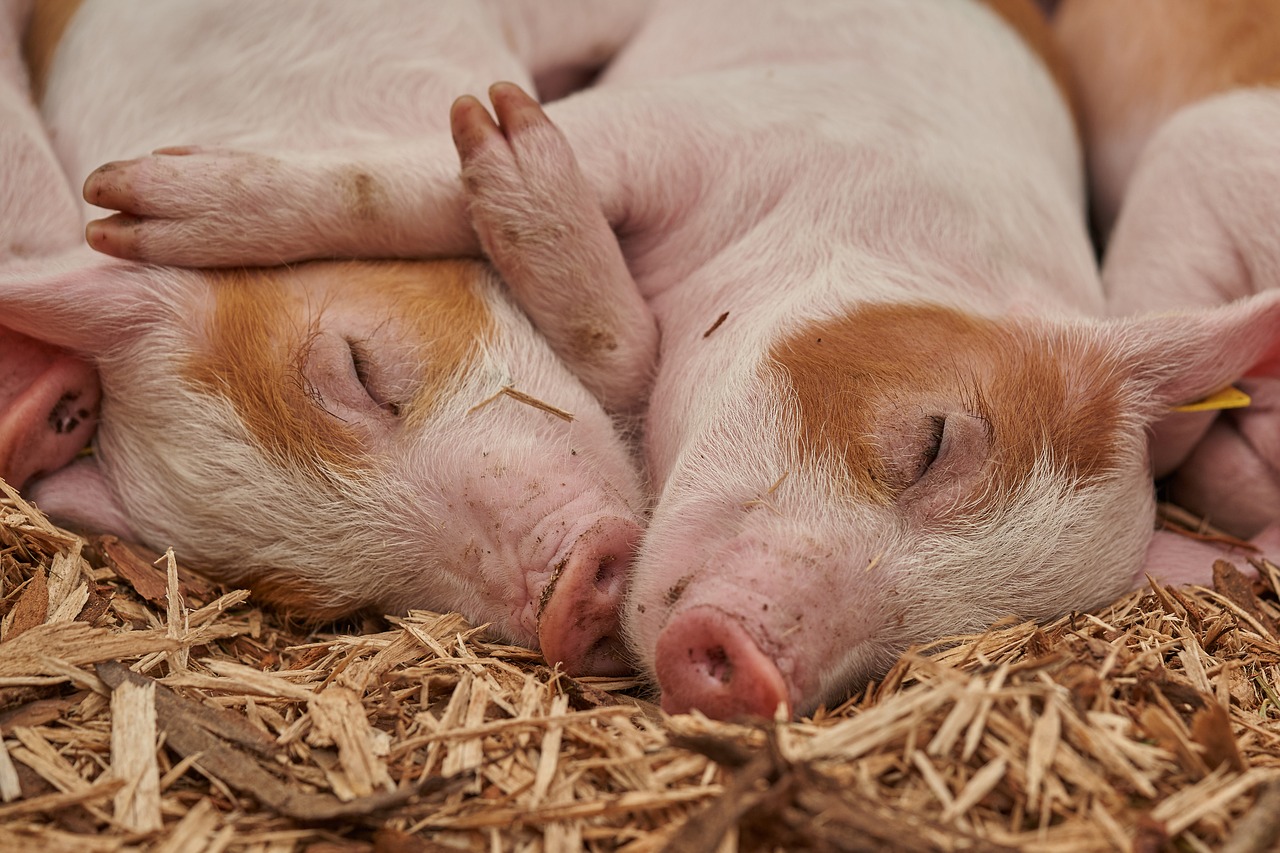
Mini pig enrichment activities
Importance of Mental Stimulation
Mini pigs are curious creatures who thrive on mental challenges. Without enough mental stimulation, they can become bored or even destructive. Keeping their minds active is crucial for their overall well-being. Some ways to engage them include teaching them simple tricks or providing puzzle feeders that make them think about how to get their treats. This not only keeps them entertained but also helps in developing their cognitive skills.
Outdoor Play Ideas
Spending time outdoors is not just about exercise; it’s about exploration and discovery for your mini pig. Consider setting up a small digging area where they can root around safely. You can also create obstacle courses using everyday items like boxes and tunnels. This encourages physical activity and satisfies their natural instincts to explore and forage. And remember, always supervise outdoor play to ensure their safety.
Interactive Toys and Games
Interactive toys are a great way to keep your mini pig entertained indoors. Look for toys that require them to figure out how to get a reward, such as treat-dispensing balls. You can also invent games like hide and seek with their favorite snacks. These activities not only keep them busy but also help strengthen the bond between you and your pet. It’s all about making their environment as engaging as possible.
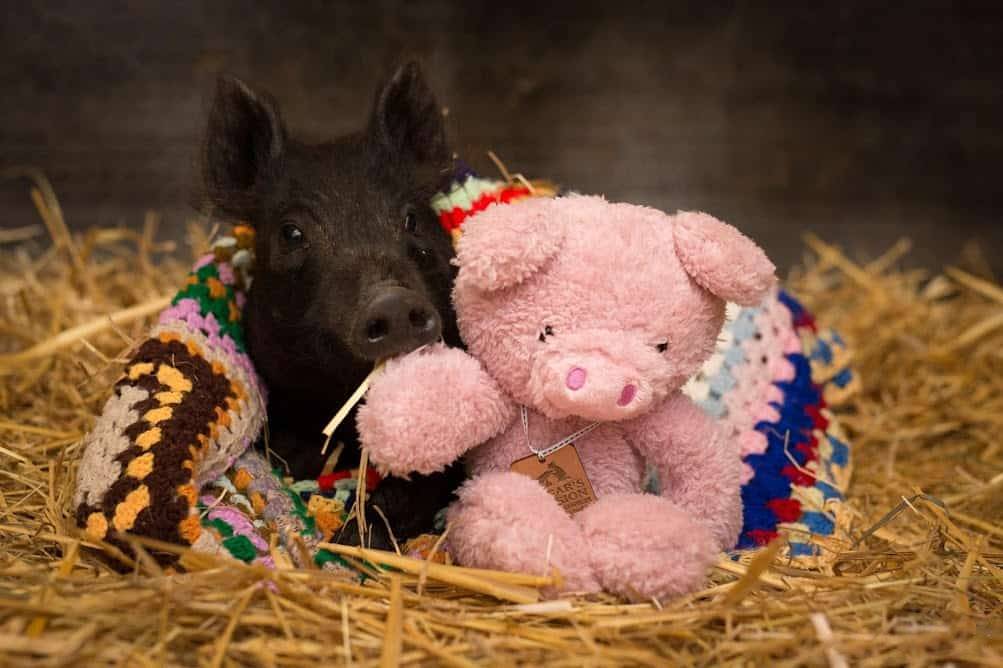
Challenges of mini pig ownership
Common Misconceptions
Owning a mini pig isn’t as simple as it seems. Many folks think these pigs stay tiny, but that’s not true. Mini pigs can grow larger than expected, often surprising new owners with their size. Another misconception is that pigs are easy to care for, like dogs or cats. However, pigs have unique needs and behaviors that require specific attention.
Time and Attention Requirements
Mini pigs are social animals and need a lot of interaction. They thrive on companionship and can become lonely or bored if left alone for too long. This means dedicating a significant amount of your day to play and engage with them. You’ll find that they enjoy routines and can get upset if those routines are disrupted.
Dealing with Stubbornness
Pigs are intelligent but can be quite stubborn. Training them requires patience and consistency. They respond well to positive reinforcement but may resist commands if they don’t see a benefit for themselves. You might find it challenging to get them to follow the rules, especially when they decide to do their own thing.
Living with a mini pig is an adventure filled with ups and downs. While they bring joy, they also come with their own set of challenges that demand understanding and commitment.
In summary, owning a mini pig involves understanding their unique needs, committing to spending quality time with them, and having the patience to manage their stubborn streaks. It’s a rewarding experience, but one that requires preparation and dedication.
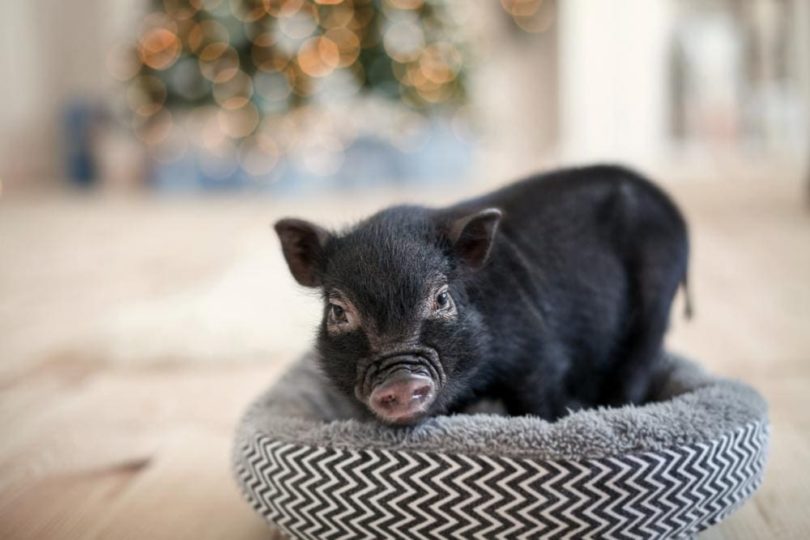
Building a bond with your mini pig
Understanding Their Communication
Mini pigs have their own unique way of communicating, and learning to understand these signals is key to building a strong bond. They use a variety of sounds, from grunts to squeals, each conveying different emotions or needs. Pay attention to their body language too. A wagging tail often means they’re happy, while a stiff posture might indicate they’re feeling threatened or unsure. Recognizing these cues will help you respond appropriately and make your pig feel more secure.
Establishing Trust and Affection
Trust is the foundation of any relationship, and with mini pigs, it requires patience and consistency. When you first bring a mini pig home, give them time to adjust. Avoid picking them up right away, as this can be stressful for them. Instead, spend time sitting on the floor, allowing them to approach you on their terms. Use treats to reward positive interactions, helping them associate you with good experiences. Over time, this will foster a sense of trust and affection.
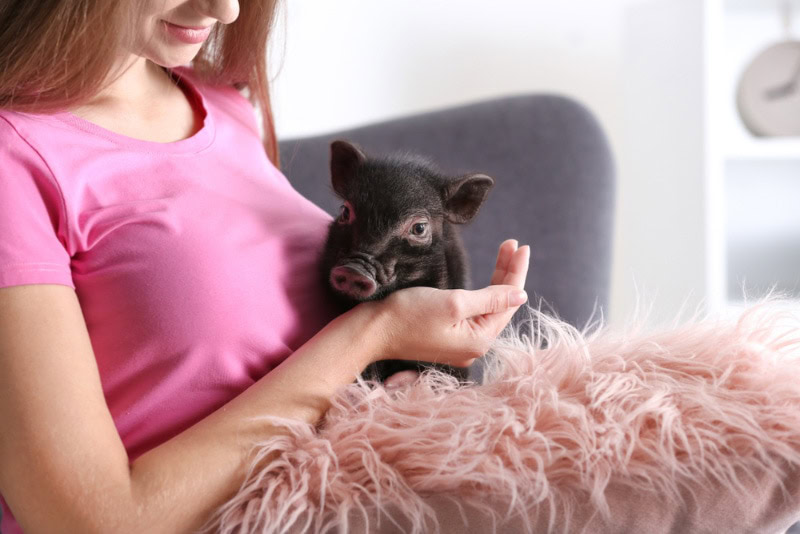
Activities to Strengthen Your Relationship
Engaging in activities together can significantly strengthen your bond with your mini pig. Here are some ideas:
- Training Sessions: Mini pigs are intelligent and can learn tricks and commands. Short, regular training sessions using positive reinforcement can be both fun and educational.
- Grooming: Regular grooming sessions not only help maintain your pig’s health but also serve as a bonding experience. Grooming your mini pig with gentle products and techniques can make them feel cared for and loved.
- Playtime: Incorporate play into your daily routine. Mini pigs enjoy games like fetch or hide and seek with treats. This not only provides physical exercise but also mental stimulation.
Building a bond with your mini pig is a journey, not a destination. It takes time, patience, and a lot of love, but the rewards of a trusting and affectionate relationship are well worth the effort. Remember, every pig is unique, so take the time to learn what makes yours happy and comfortable.
So, there you have it! Mini pigs are quite the unique pets, aren’t they? They’re smart, funny, and definitely have their own personalities. But, they’re not for everyone. They need a lot of attention and care, and they can be a bit stubborn. If you’re thinking about getting one, make sure you’re ready for the commitment. It’s not just about having a cute little piglet; it’s about being prepared for a full-grown pig that might be a bit bigger than you expected. But if you’re up for the challenge, a mini pig can be a wonderful addition to your family. Just remember, like any pet, they need love, patience, and understanding. Good luck on your mini pig journey!
